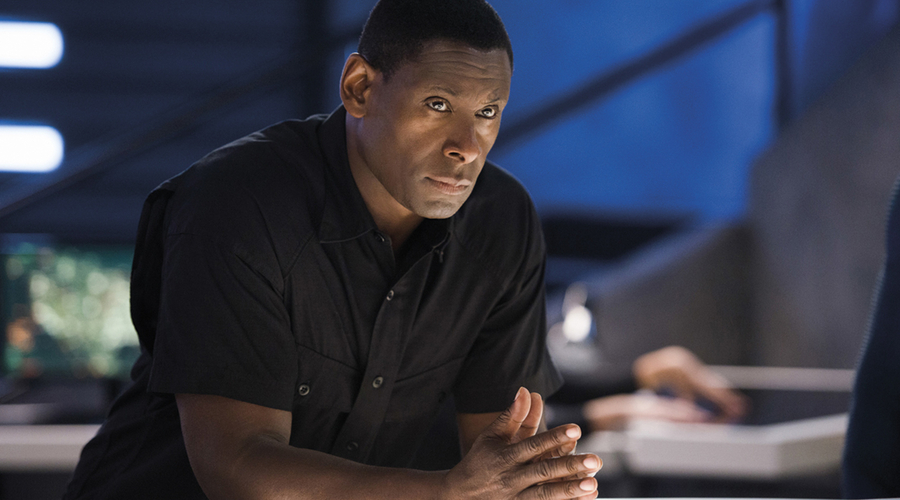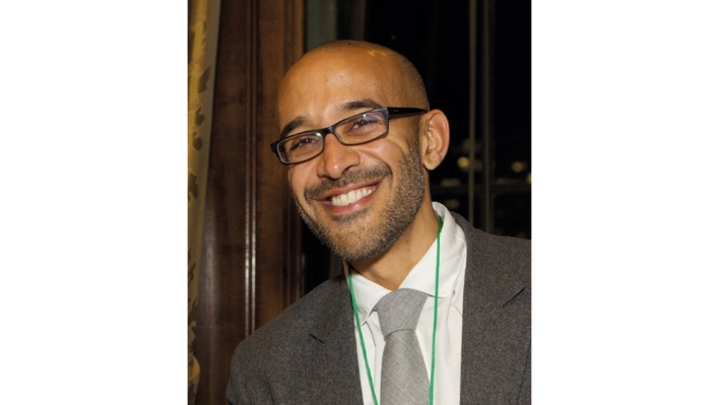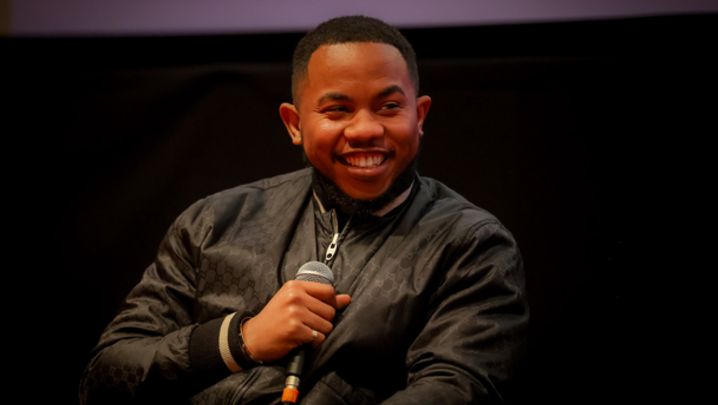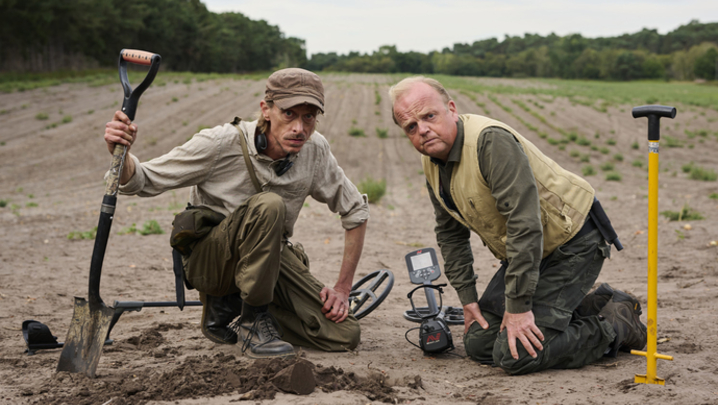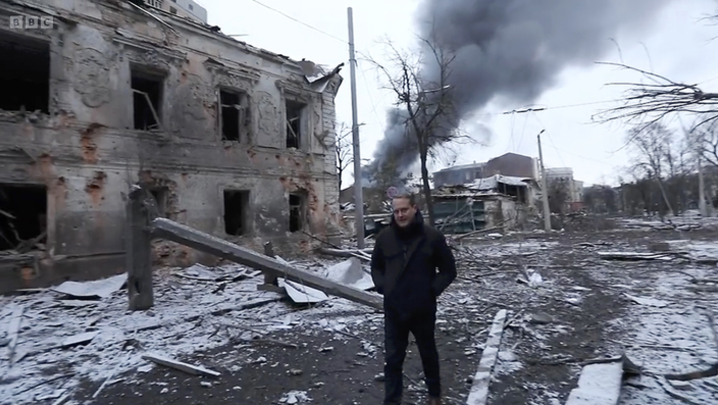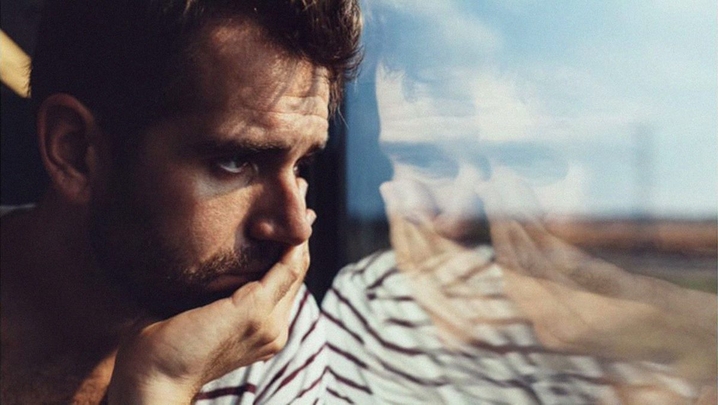The star of Homeland and Supergirl gives an unvarnished account of his career to the RTS. Roz Laws is transfixed
Actor David Harewood spoke about his bumpy road to success – including the tough life lessons he learned from Spike Lee and from Erik Estrada of CHiPs – in a candid and entertaining homecoming evening in Birmingham.
During the RTS Midlands’ “In conversation with…” event, the Homeland star enthralled the audience in the prestigious surroundings of the Council House’s Banqueting Suite.
The 53-year-old discussed his working-class roots, having to move to the US to further his career and his sectioning 30 years ago following a breakdown. This last was the subject of his acclaimed BBC Two documentary, Psychosis and Me, aired as part of Mental Health Awareness Week earlier this summer.
Harewood’s UK TV credits include Babyfather, Robin Hood, Doctor Who and The Night Manager. But he had just £80 in his bank account and was on the verge of quitting acting before auditioning for Homeland.
The son of a lorry driver and a caterer, Harewood played CIA chief David Estes, before he was blown up at the end of the second series, and is now cast as J’onn J’onzz, the Martian Manhunter, in Supergirl, a part he has played for five seasons. He also directed one episode of the show and has been asked to do more.
He said: “I knew I had to get to America because it’s extremely difficult to make it as a black actor in this country. The people who make the decisions are a small cabal, who are very white, middle class and Oxbridge.
"Britain is very dynamic but, sometimes, I watch TV and I don’t see that"
“It is changing, but very slowly. Setting up a production company is definitely the next step for me, so I can have some control.
“I would enjoy introducing things that maybe sometimes people are afraid to touch on. I think we need to be brave in production. Britain is very dynamic but, sometimes, I watch TV and I don’t see that.”
Not that Harewood has been welcomed by everyone in the US. Samuel L Jackson began a row when he criticised the casting of black British actors in films, suggesting that they were cheaper to hire.
Harewood wrote an article in the Guardian in response. This was subsequently attacked by Spike Lee in a scene in his Netflix series She’s Gotta Have It.
When Lee was castigated for his lead character’s harsh comments by industry players, including John Boyega of Star Wars, who tweeted that it was “trash” – he hit back on social media. Lee wrote on Instagram: “If you are hurt by the conversation then vent on your black Brit actor Dave Harewood.”
At the time, Harewood declined to comment. He still doesn’t want to add fuel to the fire but he told the RTS: “It is very hurtful when your heroes use your name in a derogatory way and dismiss you as cheap.
"Learning that your hero does not like you is the hardest lesson for me"
“They think that we are somehow not black enough and are insulted that we are able to imitate them. I find it bizarre. The arguments they are using don’t make sense to me.
“Learning that your hero does not like you is the hardest lesson for me. The best lesson was actually given to me by that guy from CHiPs, Erik Estrada.
“When the first series of Homeland won all the Emmys [for Outstanding Drama Series and the drama prizes for for Writing, Lead Actor and Lead Actress], I was celebrating after the ceremony, drinking Champagne and puffing on my cigar while people such as De Niro and Sidney Poitier congratulated us. I felt like a million dollars, then I noticed the guy from CHiPs.
“I went over to introduce myself and he told me ‘Be ready for when it’s over’. I thought: ‘That’s a weird thing to say, I’m having the time of my life over here!’ But I thought about it, so when they blew me up, I was ready. I didn’t moan, I just sent them an email thanking them for a great two years.”
‘In conversation with David Harewood’ was held in Birmingham’s Council House on 6 June. It was an RTS Midlands event in partnership with Film Birmingham and was hosted by Radio WM’s Samantha Meah.
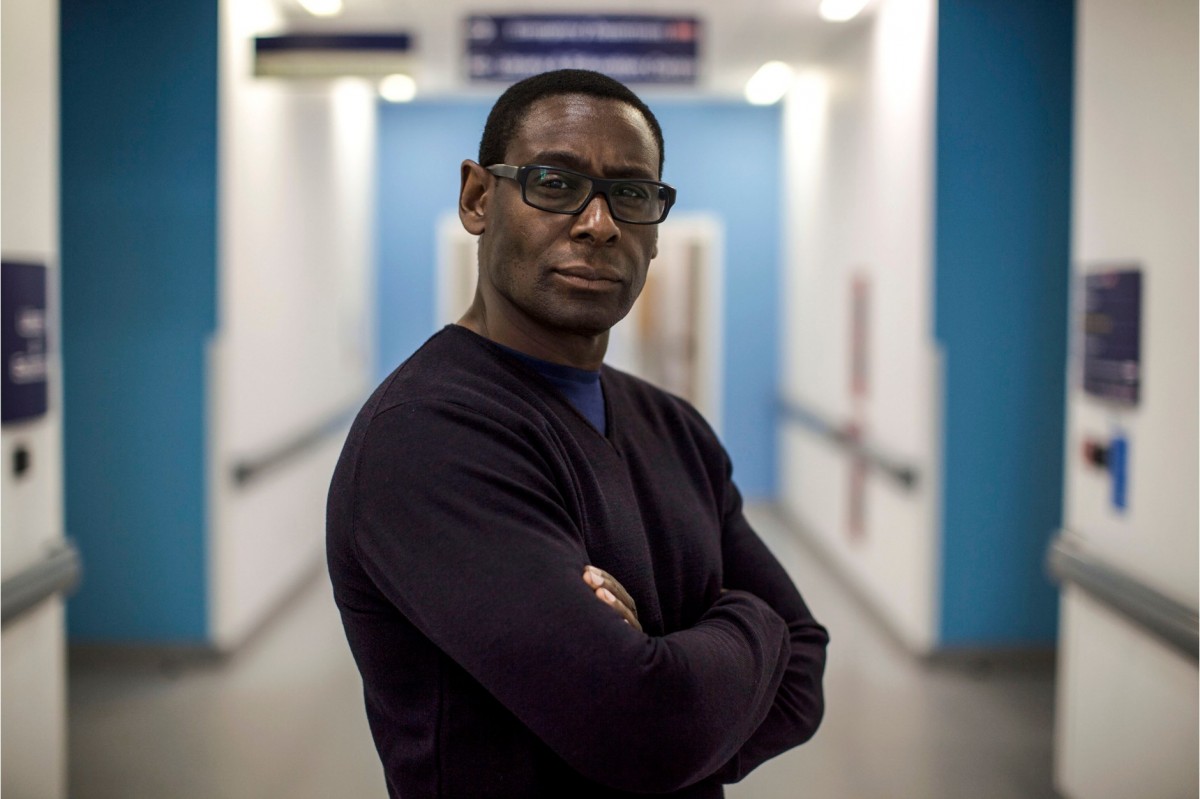
Harewood: Psychosis and me
In the BBC documentary David Harewood: Psychosis and Me, the actor read his medical notes and tracked down old friends to discover exactly what happened to him during his mental breakdown at the age of 23.
He heard voices, one telling him that he was Martin Luther King and that he should walk to Camden at 3:00am. He didn’t sleep and he sat in front of the mirror for hours, convinced his reflection was going to move. He told his friends that he had three brains.
In the film, Harewood broke down in tears when told how he had been wrestled to the floor by six policemen, who then pumped him with sedatives. He was briefly sectioned under the Mental Health Act.
He said: ‘The documentary was the toughest thing I have ever done. I had to bare my soul and become very exposed. I was confronted by the truth about what actually happened – because I didn’t remember.
‘It made me realise how lucky I was, to survive and not be criminalised. I was literally sat on by the police officers and I realised that lots of people die like that. Or they are restrained and imprisoned. That’s scary, to wake up in prison as a psychotic."
Harewood: An actor’s life
Harewood was refreshingly honest about the TV jobs he took after leaving Rada, including roles in Casualty, The Bill, Game On, Medics, Fat Friends and Ballykissangel.
‘When I look back on my career,’ he said, ‘I realise that I never knew how to say no. In hindsight, there were some jobs I shouldn’t have done.
"‘I always tell young actors - go out and be on set and take it all in"
‘But 30% of stuff was done to pay the rent. There’s no point in saying, “I can’t do The Bill because I want to be a movie star.”
‘I was never strategic in my career. I was just glad someone was offering me a job. Maybe it diluted my pedigree, but I just said yes to everything.’
Harewood raised a huge laugh from the audience when he revealed the five stages of an actor’s life: Who’s David Harewood? Get me David Harewood. We’ve got David Harewood. Get me a young David Harewood. Who’s David Harewood?
He confessed that he had never done an American accent before Homeland, but it was one of several new skills he learned on the job.
‘I was so green and had lost my confidence after not working for nine months. It was tough but it felt amazing for me to be there, a skint lad from Birmingham, working with people such as Claire Danes and Mandy Patinkin.
‘I learned how these great actors were doing their thing. I would sometimes go in on my day off just to watch them work.
‘I always tell young actors, don’t just sit in your trailer and wait for your turn, go out and be on set and take it all in.’
He is now advising his elder teenage daughter, Maize, on the TV industry: ‘She’s said that she wants to act. She’s so bright. I said that acting is just one part of a huge industry and it’s really tough. I think she’d enjoy writing or going into production.’

